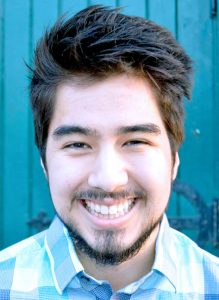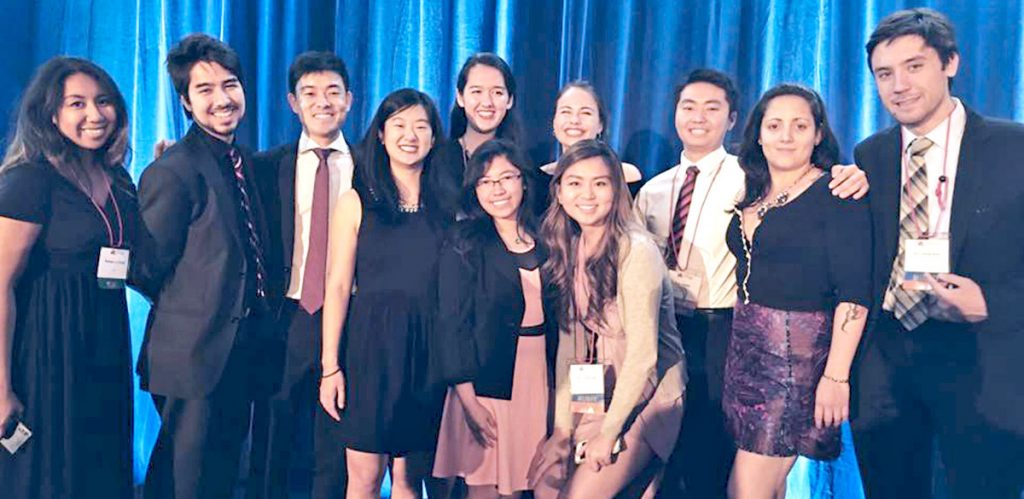 By Kenji Kuramitsu, JACL NY/SC Representative
By Kenji Kuramitsu, JACL NY/SC Representative
At the JACL National Convention in July, the National Youth/Student Council held an orientation session for young delegates. During that workshop, I invited youth to survey some of JACL’s history. In most tellings, including the History section on our website, our members tend to highlight our “histórica altura,” the soaring triumphs to which we can proudly point and puff: We were there — we stood, we fought, we showed up.
Some attendees at this workshop raised critical questions about our actions during World War II. I encouraged this “disruption,” and in airing these concerns, we collectively approached a more holistic view of our past. As a group, we tried to trouble any neat sanitizing of our moral history, which elides honest talk about our own organizational baggage — those great depths of murkiness into which we are far less eager to wade.
Yes, we made some powerful decisions at proud times: We marched with Dr. King, we passed marriage equality before any other ethnic civil rights group, we spoke out after 9/11. But if you speak with JACL members who were intimately involved in these decisions, they will tell you what Sisyphean, gargantuan battles these were, filled with uphill climbs and narrow wins. (A JACL veteran once shared his view that the organization was originally going to renege on joining the controversial March on Washington — but we eventually attended because “we already bought the banner!”)
I write this from Havana, Cuba, where I’m daily reminded of how we publicly make these critical linkages between history, memory and justice. There is a song here (from where I poached the “heights of history” line) that recounts the grand exploits of the revolutionary Che Guevara, a tune as beloved and ubiquitous as our country’s national anthem.
I find myself surrounded by monuments to Cuba’s Chinese soldiers and to Martin Luther King Jr. and Malcolm X, taking in posted propaganda, ballads and slogans and marble countenances.
Monuments, as all “remembrances,” celebrate certain shoots of greenery, while duly paring away other branches from the pantheon. National governments notoriously engage in this sort of historycraft — denying genocides, rewriting textbooks, refusing to acknowledge the suffering they have inflicted, ignoring indigenous claims to territorial sovereignty.
The monuments throughout the American South erected to enslavers and Confederates represent such a selective rendering of history, one which draws sympathies toward divinized white flesh, rather than suffering humanity.
It is important to remember that when it comes to history, there is no single, objective standing point, no sterile and neat version that avoids inflicting violence to anyone. “Neutrality” is a delusion, a moral trick of the light. History is always told for political and economic ends, which means some voices will be excluded, and others will take center stage.
As Japanese Americans, the ways we tell our community’s stories can help us make connections with others, even as it stymies other affinities. We have, for instance, retold our own story in a way that makes critical linkages with the “parallel” experiences of Muslim and Arab Americans. This is laudable and must continue.
We have not, however, chosen to draw such critical kinships and solidarities with black Muslim communities. We have largely not cultivated conscious resemblance with victims of modern mass incarceration, nor with those victimized by our immigration system or indigenous peoples still under occupation on the mainland and beyond.
But these stories are also, inextricably, our stories: Border patrol officers were mobilized to enact the internment of Japanese nationals; the first physical border wall between the United States and Mexico was constructed by recycling a chain-link fence from Crystal City(!); two of the Nikkei concentration camps were built without tribal permission upon Native reservation lands(!); the state continues to practice techniques of racialized surveillance, detention and profiling, many of which were originally honed with our incarceration.
It’s not “out of place” for us to comment on Standing Rock, or immigration raids or the modern anti-black policing apparatus — it’s a moral obligation. It’s up to us to make these new linkages, to constantly excavate and redeploy our community history for radical, justice-oriented ends.
As a longstanding civil rights organization, we have been at the forefront of social change and human dignity-preserving action — even as we have at other times engaged in duplicitous and unethical behavior.
This is a reflection of our frail, bold yet imperfect humanity. As a friend told me recently, every “stance” that we take simultaneously exposes our own hypocrisy, the moral distance we have yet to close. (I feel this each time a “radical” resolution is proposed before the JACL National Council and needs to be “defanged” to be more acceptable.)
Leaving convention this summer, I feel so proud of the ways that the people who make up this organization continue to sharpen one another, laboring daily for a less lethal and vindictive United States.
I am reminded of how important it is that you are here. We have different stories and sometimes markedly different opinions, but we have so much work to do, and you are a critical part of it. We reach a more honest appraisal of the true heights and depths of history with all of you present.
Hasta la victoria, siempre.
Ryan Kuramitsu is the JACL NY/SC Youth Representative.




